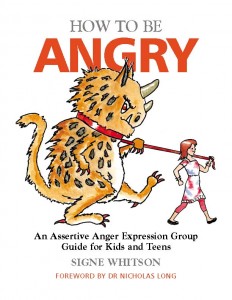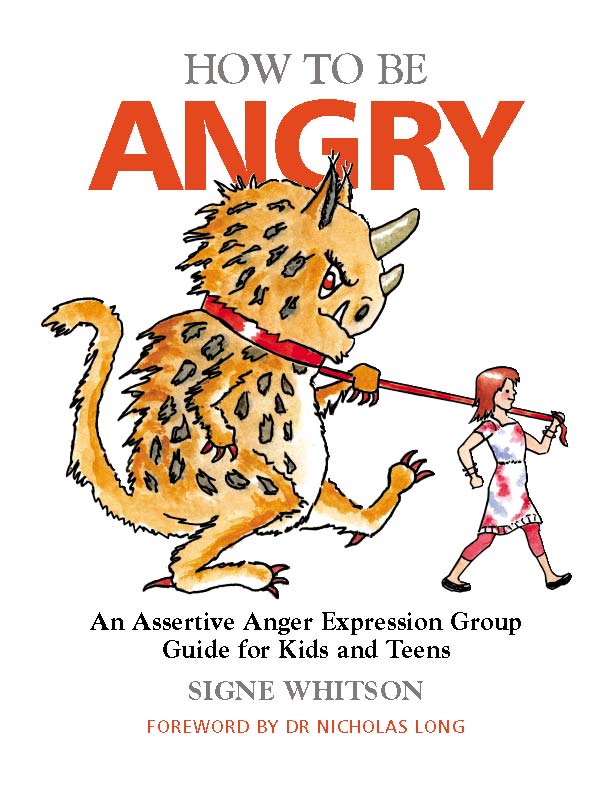Posts tagged how to be angry
How to Help Your Overly-Compliant Child
0![]() Got a kid who can’t—or won’t—assert herself around others? Highlights Magazine interviewed me, Dr. Michele Borba, and Dr. Kristin Buss for strategies on how to help passive young people find their voices. Check out our responses using the link below and at the “Smart Answer to Parents’ Toughest Questions” section on Highlights.com
Got a kid who can’t—or won’t—assert herself around others? Highlights Magazine interviewed me, Dr. Michele Borba, and Dr. Kristin Buss for strategies on how to help passive young people find their voices. Check out our responses using the link below and at the “Smart Answer to Parents’ Toughest Questions” section on Highlights.com
https://www.highlights.com/parents/articles/smart-answers-parents-toughest-questions-passive-child-2
 For more information on helping your child move beyond passivity, aggression, or passive aggression and on to more assertive communication, check out the activities, games and discussion ideas in How to Be Angry: An Assertive Anger Expression Group Guide for Kids & Teens.
For more information on helping your child move beyond passivity, aggression, or passive aggression and on to more assertive communication, check out the activities, games and discussion ideas in How to Be Angry: An Assertive Anger Expression Group Guide for Kids & Teens.
How to Be Angry Used in Homeschooling Program
0There’s nothing that an idealistic, trying-to-change-the-world-one-child-at-a-time, do-gooder like me values more than hearing that their work is truly making a difference for others. Yesterday, Vanessa Reinelt, a homeschooling mom of two and teacher of 4 other children, sent me this music-to-my-ears feedback:
We have been working through your “How to Be Angry” curriculum and already are seeing huge benefits. Our children (ages 10-13) are already identifying their anger and striving to express their anger assertively! I have looked at many programs and resources trying to find an appropriate one to teach the kids about emotional and social health. None can compare to the depth and quality that yours provides. I  absolutely love the format you use. Teaching the 4 types of Anger Expression and with the healthiest (Assertiveness) as the last module. I genuinely believe if we teach children about expressing…emotions in healthy ways, the human race will stand a chance in reaching the next millennium.
absolutely love the format you use. Teaching the 4 types of Anger Expression and with the healthiest (Assertiveness) as the last module. I genuinely believe if we teach children about expressing…emotions in healthy ways, the human race will stand a chance in reaching the next millennium.
Thanks again for your time Ms. Whitson. You are truly a credit to your profession. Thank you for your amazing book. Your work is making the world a better place.
Thank YOU, Vanessa, for prioritizing the social and emotional health of kids!
If you’ve used How to Be Angry, Friendship & Other Weapons, The Angry Smile, or 8 Keys to End Bullying with students, please let me know how the experience has been for you!
Conflict Metaphor for Kids
43Through the wonders of Facebook, a friend of a friend of a 4th grader shared this pearl of wisdom about conflict resolution. Only wish I had the pleasure of knowing this elementary school student personally!
In conflict with another person, if you come in fierce like a tiger, you’ll have to win. So only you will be happy.
If you come in like a bunny, scared, the other person will win, so only that person will be happy.
If you come in like a bird, with your wings and your heart open, both people in the conflict will win, and both will be free.
Will be sure to use this during How to Be Angry workshops with kids!
Referee Much? Why Sibling Rivalry Is Good for Kids
459Some days, arguing comes as naturally to my kids as breathing! I take heart, knowing that there are lessons to be learned. Please read on and share this link if you, too, spend a lot of your parenthood hoping that all of this bickering will actually benefit your little ones down the line…
http://www.huffingtonpost.com/signe-whitson/sibling-rivalry_b_1353771.html
Asking Adults to Tune In & Listen to Kids: The Relate Talk to Us Campaign
748Check out this newly released video from Relate, the UK’s largest provider of relationship support for couples, families, and kids. The Relate Talk to Us Campaign is designed to encourage parents to listen well to their kids and to understand the sources of the anger that are driving childrens’ needs for professional help.
Relate recently commissioned two surveys–one of counselors and one of young people–to find out what is really bothering our kids. Click here to read what professionals and kids are saying about the stressors in their lives.
25 Rules for Daughters from People I Want to Punch in the Throat
0I love, love, love these rules! If I had a “theme rule” for How to Be Angry, it would be Rule 9:
Teach your daughter that she has the right to get loud. Make sure she knows girls can get angry, they can have opinions and they can throw “lady like” behavior out the window if necessary.
3 Ways to Help Your Child Cope with Angry Feelings
1079Have you ever been in a situation where you were so overwhelmed with feelings of anger that you were at a loss for words? You had the presence of mind to know all of the things that you shouldn’t say, but weren’t quite sure how to express your true feelings without damaging your relationship. Adults often struggle with effectively communicating angry feelings. For children, this challenge is doubly difficult; kids don’t want to get in trouble for expressing themselves aggressively, but they often lack the skills for communicating assertively.
For three specific skills parents can teach kids to cope with angry feelings effectively, please check me out on Yahoo! Shine:
http://shine.yahoo.com/
Or check out How to Be Angry: An Assertive Anger Expression Group Guide for Kids & Teens for even more kid-friendly strategies.
When Parents Mirror Kids’ Behavior: The Conflict Cycle on NBC’s Parenthood
The Conflict Cycle™ is Life Space Crisis Intervention’s (LSCI) major paradigm for understanding the dynamics of escalating power struggles between adults and children. In our training courses for parents and professionals, we explain that in times of stress and conflict, kids can create in adults their feelings, and, if not trained, adults will mirror their behaviors. In the heat of the moment, when adults do what comes naturally–what thousands of years of evolution have prepared their bodies to do–they often only make matters worse. That is why understanding the LSCI Conflict Cycle is the first line of defense against fueling further conflict.
This clip from NBC’s Parenthood is a perfect example of how Kristina gets caught in a Conflict Cycle and inadvertently mirrors Max’s behavior, thus escalating their power struggle. Ultimately, both mother and son lose out. The look of defeat on her face at the end of the clip says it all.
For more information on the LSCI Conflict Cycle and training for parents and professionals, please visit the LSCI link above or visit www.lsci.org

